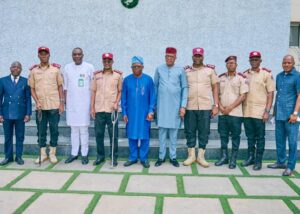Strike: Obey court ruling before you appeal, Ngige tells ASUU
Chris Ngige, minister of labour and employment, has asked the Academic Staff Union of Universities (ASUU) to obey the court ruling directing lecturers to call of their ongoing strike.
On Wednesday, the national industrial court had granted the federal government’s application for an interlocutory injunction seeking to restrain ASUU from continuing with the strike.
The union was also ordered to resume work pending the hearing and determination of the substantive suit.
But ASUU had said it would appeal the judgment, while the union is yet to announce any development on the strike, which has now been on for over seven months.
Speaking on Friday with journalists on the sidelines of the United Nations general assembly (UNGA) in New York, Ngige said ASUU has a duty to obey the court order before taking any decision on the appeal.
“I am not ASUU, but the maximum in law is that when there is a court judgment or ruling or order, you must first obey. And then, we can apply for an appeal if you so desire or apply for stay, that is, stay of execution,” he said.
“So, the maximum in law, jurisprudence, and everything about the law, is that you obey the court’s ruling, judgment or order, no matter how bad.
The qualifying thing is that no matter how bad and no matter how you disagree with it, you first obey. Like the military people say, obey before complain.
“So, we expect them to get back to the classrooms, but that doesn’t foreclose negotiations. The negotiations should be on as a matter of fact; it will be on officially and non-officially.
“For example, the house of representatives had invited us to come and brief them. And together, they are stakeholders. You heard Mr President say to the committee of pro-chancellors when they visited him, that he would do consultation as per the two requests on putting an icing on the cake on the government’s offer to ASUU members and the issue of resettlement fund to cushion the effect of the ‘no work, no pay’ situation they found themselves in.
“So, the president will look at it. The house of representatives are stakeholders. Ministers are not only stakeholders, we are advisers to Mr. President by the provisions of the constitution, and we hold regular meetings with him. So, we are his chief advisers.
“We will interface with the house of representatives and all of us collectively will advise Mr. President.”












Post Comment